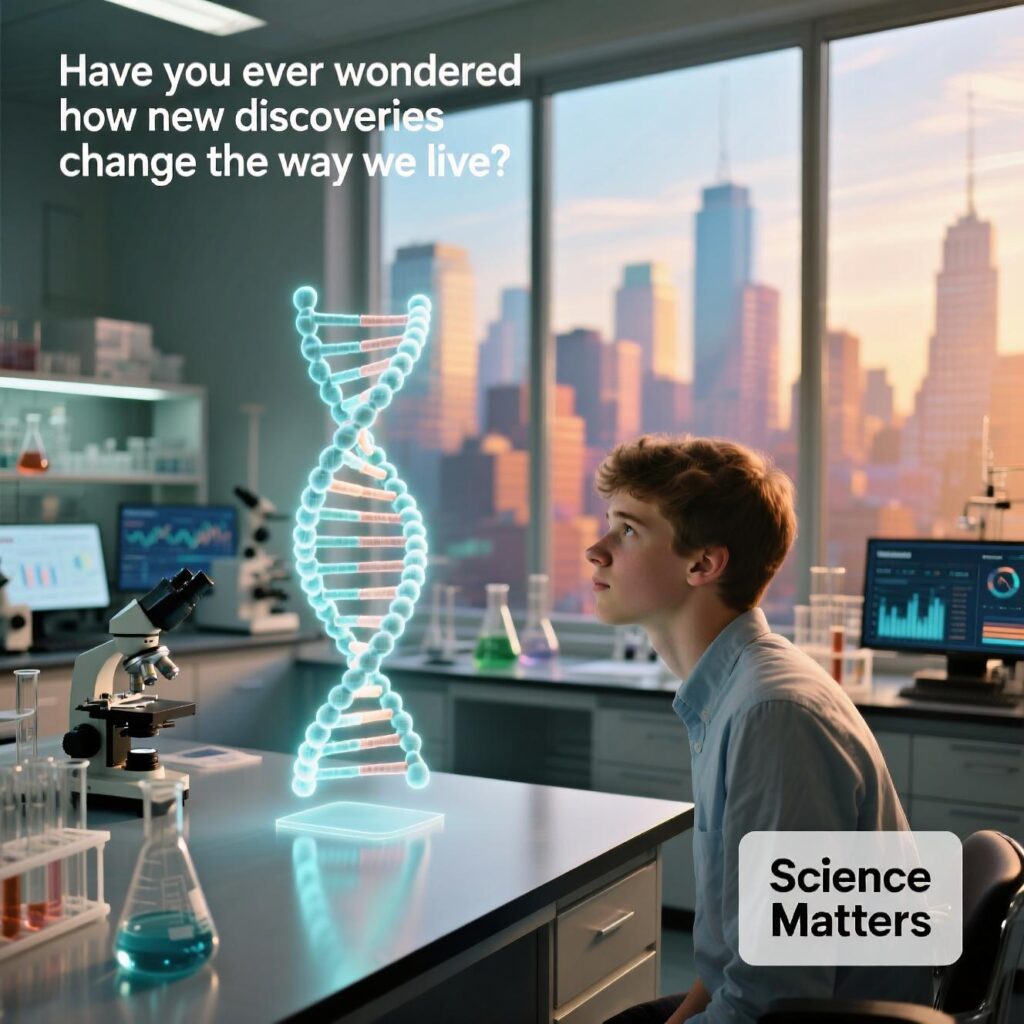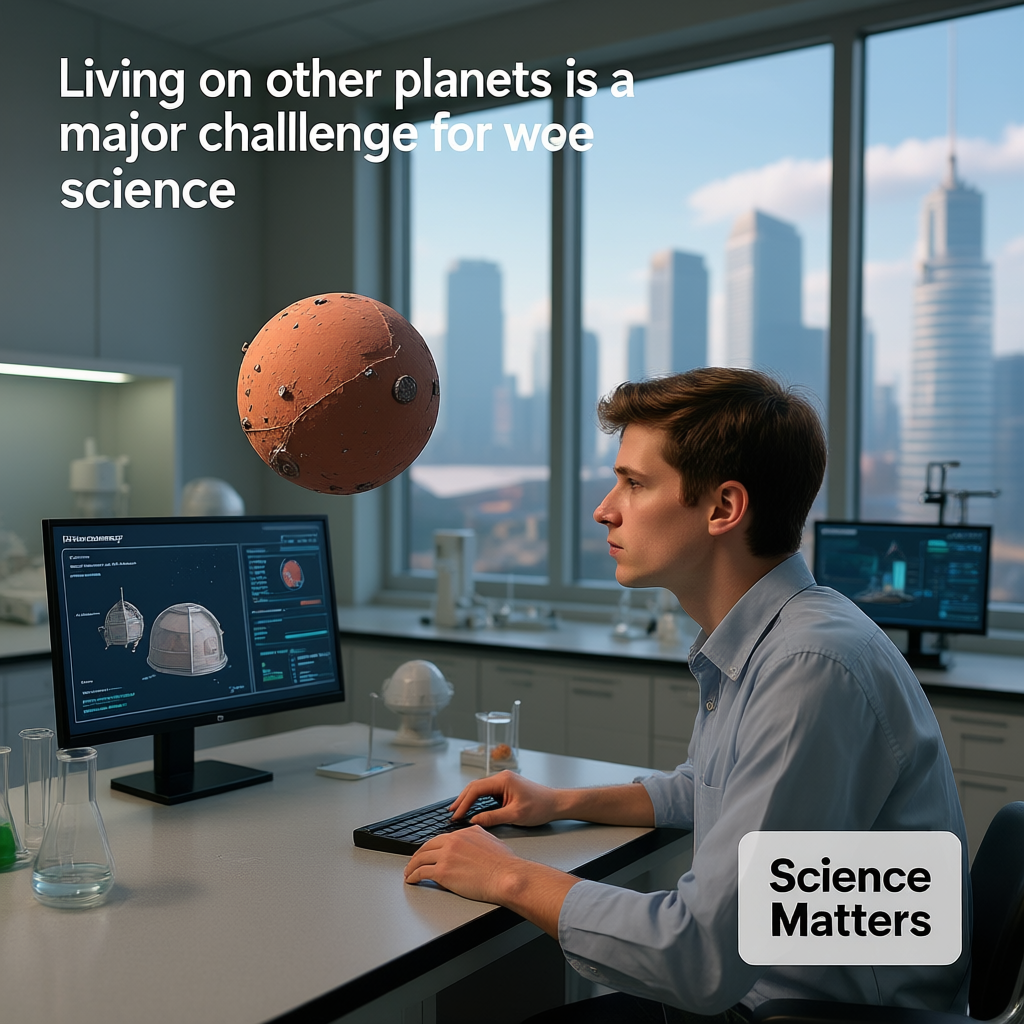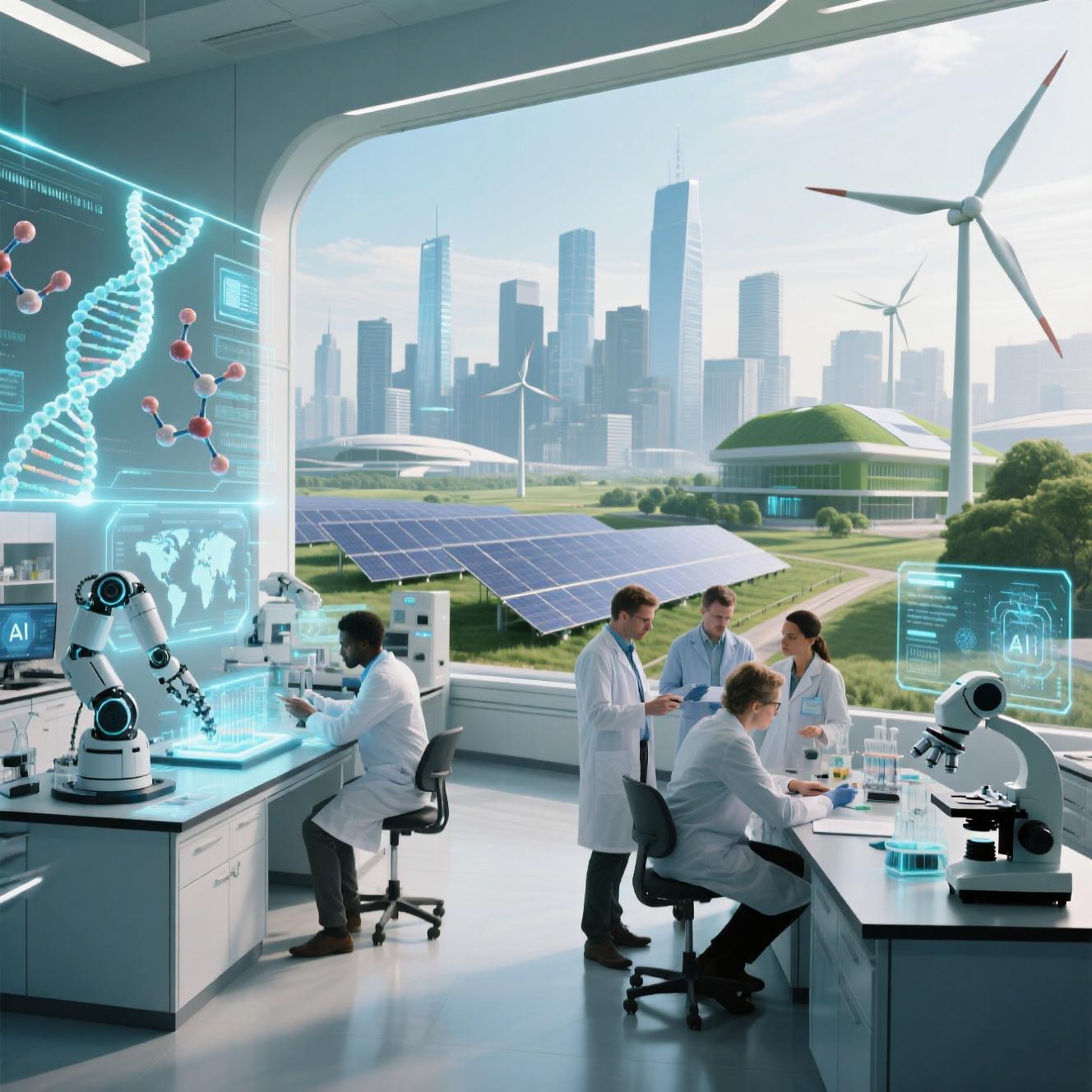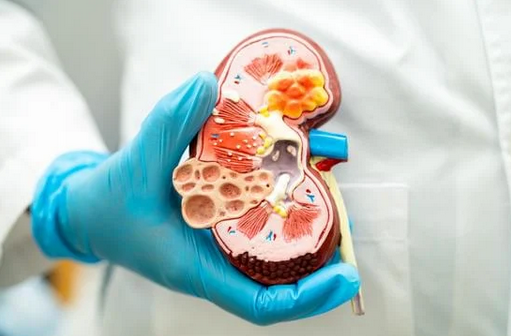Have you ever wondered how new discoveries change the way we live? Science and research hold the key to unlocking mysteries and improving your daily life.
When you understand how they work, you can see the world in a whole new light. This article will take you through the fascinating process behind every breakthrough and show why science matters to you. Keep reading to discover how research shapes your future and sparks innovation around you.

Revolutionary Advances In Genetics
Genetics is changing fast. New discoveries are helping scientists understand how living things work. These advances give us tools to change genes. This can help treat diseases and improve health.
Scientists now edit genes more easily. They also create medicines made for each person. These changes bring hope but also raise questions. The future of genetics is bright and full of challenges.
Gene Editing Technologies
Gene editing lets scientists change DNA in living cells. CRISPR is one popular tool for this. It is fast and precise. Scientists can fix gene mistakes that cause diseases. This technology can help with cancer, genetic disorders, and more. It also allows research on plants and animals to improve food and health.
Personalized Medicine
Personalized medicine uses genetic information to treat people. Doctors can choose the best medicine based on a person’s DNA. This makes treatments safer and more effective. It helps avoid side effects. Personalized medicine is growing in cancer care and rare diseases. It shows the power of genetics in everyday health.
Ethical Implications
Changing genes brings big ethical questions. Who decides which genes to change? What about risks to future generations? Some worry about fairness and safety. Laws and rules are needed to protect people. Scientists must work with the public to make good choices. Ethics is a key part of genetic research.
Quantum Computing Impact
Quantum computing changes how we solve complex problems. It uses the strange rules of quantum physics. These computers can process many possibilities at once. This ability can speed up tasks that are very hard for normal computers.
Its impact reaches many fields. Science, security, and technology all stand to gain. Understanding quantum computing helps us see future advances.
Principles Of Quantum Machines
Quantum machines work with quantum bits, or qubits. Qubits differ from regular bits by being in multiple states at once. This is called superposition. Another key idea is entanglement, where qubits connect across distances. These principles let quantum computers handle complex calculations faster.
Applications In Cryptography
Quantum computers can break many current encryption methods. This poses risks to data security worldwide. At the same time, they help create stronger cryptography. Quantum cryptography uses quantum rules to protect information. It promises safer communication in the future.
Future Prospects
Quantum computing is still developing. Scientists work on building stable, large-scale quantum machines. Future quantum computers may solve problems in medicine and materials science. They could improve artificial intelligence and climate modeling. The path is challenging but full of promise.
Renewable Energy Innovations
Renewable energy innovations are changing how we power our world. New technologies make clean energy more efficient and affordable. These advances help reduce pollution and protect the environment. Scientists and engineers work hard to create better solutions for energy needs.
Next-generation Solar Power
Solar power is becoming more powerful and cheaper. New materials capture sunlight better than before. Thin, flexible solar panels can fit on many surfaces. Some panels work even on cloudy days. These improvements increase solar energy use everywhere.
Breakthroughs In Energy Storage
Storing energy is key to using renewable power well. New batteries last longer and charge faster. Some use safer, more common materials. Innovations also include systems that store energy as heat or air. Better storage means energy is ready when we need it.
Sustainable Transportation
Transport is shifting from fossil fuels to clean energy. Electric vehicles become more common and affordable. Advances in battery tech help cars drive farther. Public transport uses electricity or hydrogen fuel cells. These changes cut carbon emissions and improve air quality.
Artificial Intelligence Evolution
Artificial Intelligence has grown fast over the past years. It started as simple programs and now powers many smart tools. This evolution affects many fields like science, business, and daily life. AI learns from data and helps solve complex problems. Its progress changes how we live and work.
Machine Learning Breakthroughs
Machine learning lets computers learn from data without being told exactly what to do. Recent breakthroughs improve accuracy and speed. New algorithms help recognize images, understand speech, and predict trends. These advances allow AI to perform tasks once thought impossible. Many industries benefit from these smarter systems.
Ai In Healthcare
AI aids doctors by analyzing medical data quickly. It helps detect diseases early and suggests treatments. Robots assist in surgeries with precision. AI also monitors patients remotely, providing real-time updates. These tools improve patient care and save lives.
Ethics And Regulation
AI raises questions about privacy and fairness. People worry about bias in decisions made by AI. Rules are needed to ensure safe and fair use. Governments and organizations work to create these laws. Ethical AI means respect for human rights and transparency in actions.
Space Exploration Milestones
Space exploration has reached many important milestones over the decades. These achievements show our growing knowledge of the universe. They also reflect the hard work and innovation of scientists and engineers worldwide.
Each mission and discovery helps us learn more about our solar system and beyond. They bring new data and ideas that shape future space projects. These milestones mark both challenges and successes in exploring space.
Mars Missions Progress
Mars missions have advanced quickly in recent years. Robots and rovers sent to Mars study its surface and atmosphere. They search for signs of past life and water. These missions give clues about Mars’ history and climate.
Recent rovers carry advanced tools to analyze soil and rocks. They send pictures and data back to Earth. Scientists use this information to plan future missions. Some missions focus on preparing for human visits.
Asteroid Mining Potential
Asteroid mining is a new idea for space resources. Asteroids contain metals and minerals that are rare on Earth. Mining them could support space travel and industry. It might reduce the need to send heavy materials from Earth.
Researchers study how to land on and extract materials from asteroids. They face technical and safety challenges. Still, asteroid mining could provide fuel and building materials in space. This could help long-term space missions.
Colonization Challenges
Living on other planets is a major challenge for science. Humans need air, water, food, and shelter in space. Creating these on Mars or the Moon requires new technologies. The harsh environment and distance from Earth add risk.
Scientists work on life support systems and sustainable habitats. They also study effects of low gravity on the human body. Solving these problems is key for future space colonies. It will allow people to live and work far from Earth.

Neuroscience Discoveries
Neuroscience discoveries reveal how the brain works in new ways. Scientists study brain activity to understand thoughts, feelings, and actions. These findings help improve health and technology.
Brain-computer Interfaces
Brain-computer interfaces (BCIs) allow direct communication between the brain and devices. These systems can help people with disabilities control computers or prosthetic limbs. BCIs use brain signals to perform tasks without muscle movement. This technology grows fast and offers new hope for many patients.
Neuroplasticity Insights
Neuroplasticity means the brain can change throughout life. It adapts by forming new connections after injury or learning. Scientists found ways to boost this ability to improve memory and recovery. Understanding neuroplasticity opens doors to better education and therapy methods.
Treatments For Neurological Disorders
Research leads to better treatments for diseases like Parkinson’s and Alzheimer’s. New drugs and therapies slow disease progress and improve life quality. Scientists focus on early diagnosis and personalized medicine for best results. These advances offer hope to millions worldwide.
Frequently Asked Questions
What Is The Importance Of Science In Everyday Life?
Science helps explain how things work and improves health, technology, and the environment.
How Does Research Contribute To Scientific Progress?
Research tests ideas and finds new facts that help build better knowledge and solutions.
What Are The Main Types Of Scientific Research?
There are three types: basic, applied, and experimental research, each with different goals.
How Do Scientists Ensure Research Is Trustworthy?
They use careful methods, repeat tests, and share results for others to check.
Why Is Science Education Important For Society?
It teaches critical thinking, problem-solving, and helps people make informed decisions.
Conclusion
Science and research shape our world every day. They help us solve problems and find new answers. Through careful study, we learn about nature and ourselves. This knowledge grows step by step, with many small discoveries. Science invites curiosity and a desire to explore.
It connects people across countries and cultures. Keep asking questions and seeking truth. That’s how progress continues. Science is a journey, not a final destination. Stay curious, and the future will unfold with new wonders.










